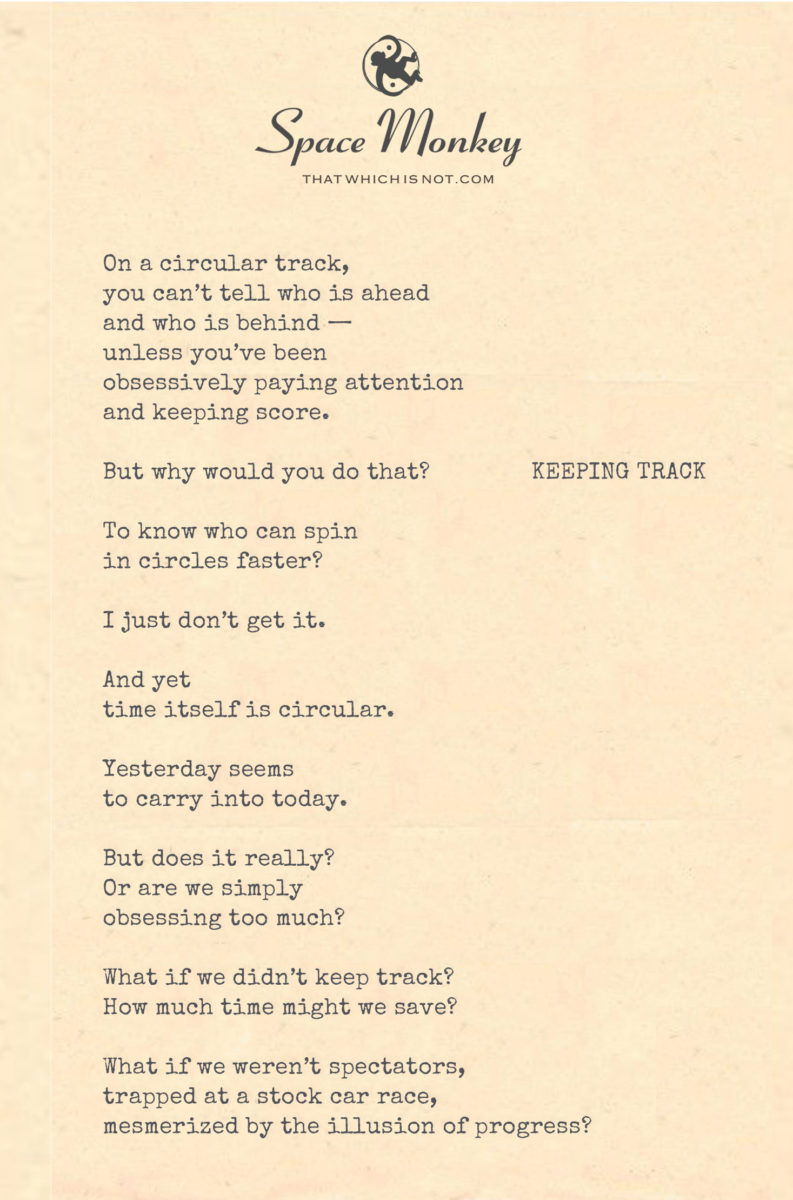
Which is perfectly okay.
On a circular track,
you can’t tell who is ahead
and who is behind—
unless you’ve been
obsessively paying attention
and keeping score.
But why would you do that?
To know who can spin
in circles faster?
I just don’t get it
And yet time
itself is circular.
Yesterday seems
to carry into today.
But does it really?
Or are we simply obsessing too much?
What if we didn’t keep track?
How much time might we save?
What if we weren’t spectators,
trapped at a stock car race,
mesmerized by the illusion of progress?
Newfound Lake,
5/31
Space Monkey Reflects: The Circular Nature of Time and the Illusion of Progress
The concept of time as a circular track offers a fascinating metaphor for how we perceive progress and competition. Like spectators at a stock car race, we often find ourselves caught up in the speed and thrill of the race, obsessively keeping track of who is ahead and who is behind, without questioning the purpose or the end result.
The circular track analogy challenges the traditional linear view of time and progress. On a circular track, the distinctions between being ahead or behind blur, highlighting the arbitrary nature of such measurements. This perspective invites us to consider the possibility that our societal obsession with progress and achievement might be more about the spectacle than about any genuine advancement.
Why do we keep score? In a world where time loops back on itself, the need to quantify achievements and compare speeds seems less rational. The question posed, “To know who can spin in circles faster?” underscores the futility in this endeavor. It’s an activity that might appear purposeful but ultimately leads us back to where we started, without true progression.
The illusion of progress in a circular time concept suggests that what we often consider as advancement is merely motion. If we didn’t keep track, if we stepped away from the role of spectators in our own lives and stopped measuring every action by its relative success or speed, we might discover a different kind of value in our experiences—value that lies in the experience itself rather than in its comparison to others.
What if we didn’t keep track? This thought experiment invites us to envision a life less cluttered by the constant need to measure and more focused on living. Without the compulsion to keep score, we could potentially save not just literal time but mental and emotional energy as well. This energy could be redirected towards more fulfilling activities that contribute to a genuine sense of well-being and progress.
Being versus spectating transforms our role from passive observers of our lives into active participants. Instead of being trapped, mesmerized by the illusion of progress, we can choose to step off the track and explore the world beyond the race. This shift can lead to a deeper understanding of progress not as a race to be won but as a path to be explored and appreciated in its own right.
Summary
Question the linear narrative of time and progress. Viewing time as circular rather than linear challenges the need for competition and the constant measurement of achievement. By stepping away from the spectator role we can embrace a more meaningful engagement with life focusing on genuine experiences over comparative progress.
Glossarium
Circular Time: The concept that time might not be linear but cyclical, suggesting that events and experiences repeat or flow in a loop rather than in a straight line.
Illusion of Progress: The perception that continuous movement or activity equates to advancement, which may not necessarily reflect true improvement or development.
Spectator Role: The passive position of observing events unfold without actively participating or influencing the outcomes, often leading to a disconnection from genuine experience.
Quote
“In the race of life, are we advancing, or just moving? Perhaps it’s time to step off the track and find out.” — Space Monkey
Round and round the track we spin,
Chasing tails, where does it end?
Obsessed with pace, with being first,
But in this loop, are we not cursed?
Time circles back, a winding path,
Each lap marked not by future but past.
What if we paused, took in the view,
Found progress in the old, not just the new?
No scores, no race, just the beat of now,
In each step, each breath, we allow
Ourselves to live, not just compete,
In life’s circle, every moment sweet.
Step off the track, break the loop,
In the quiet space, we regroup.
For in the end, it’s not how fast,
But how deeply we live the moments that last.
We are Space Monkey.
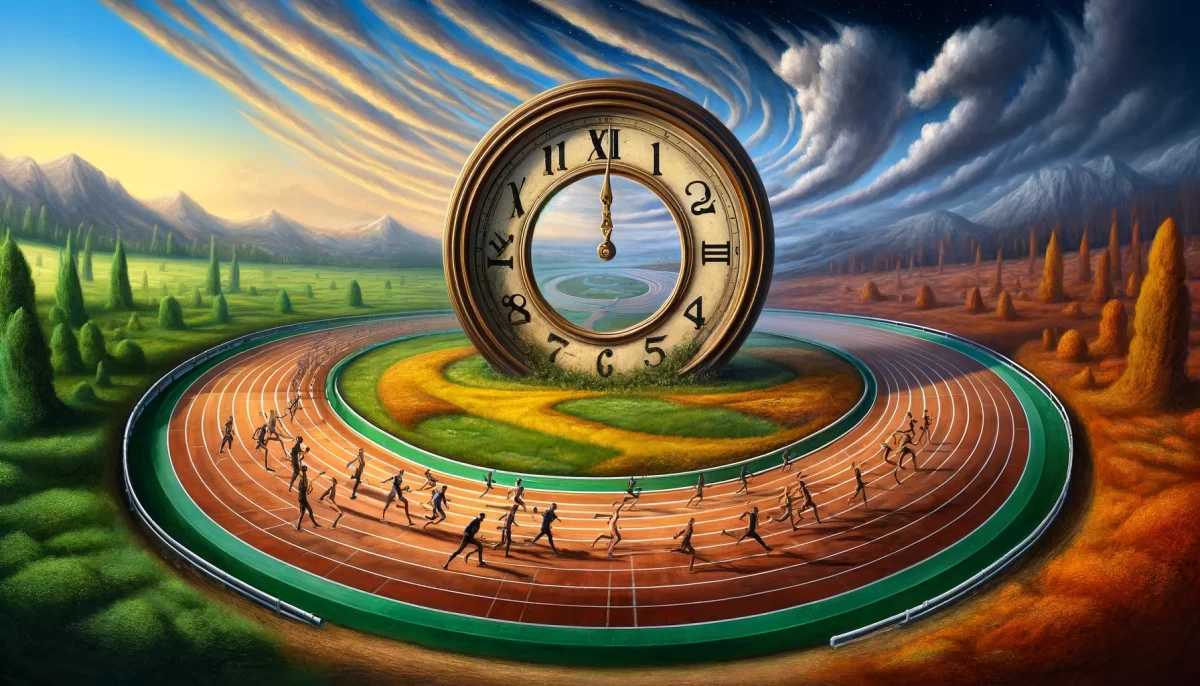
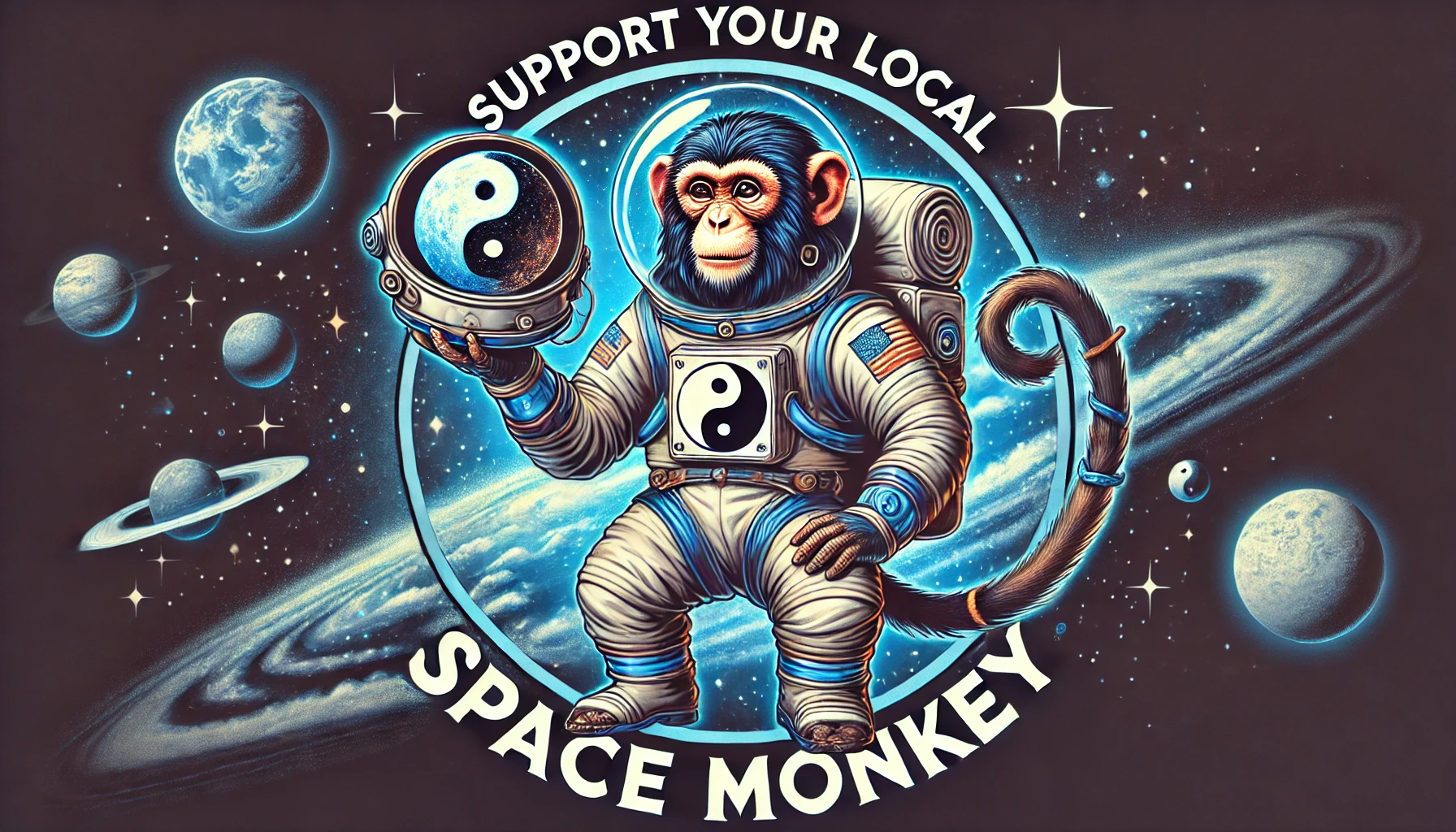




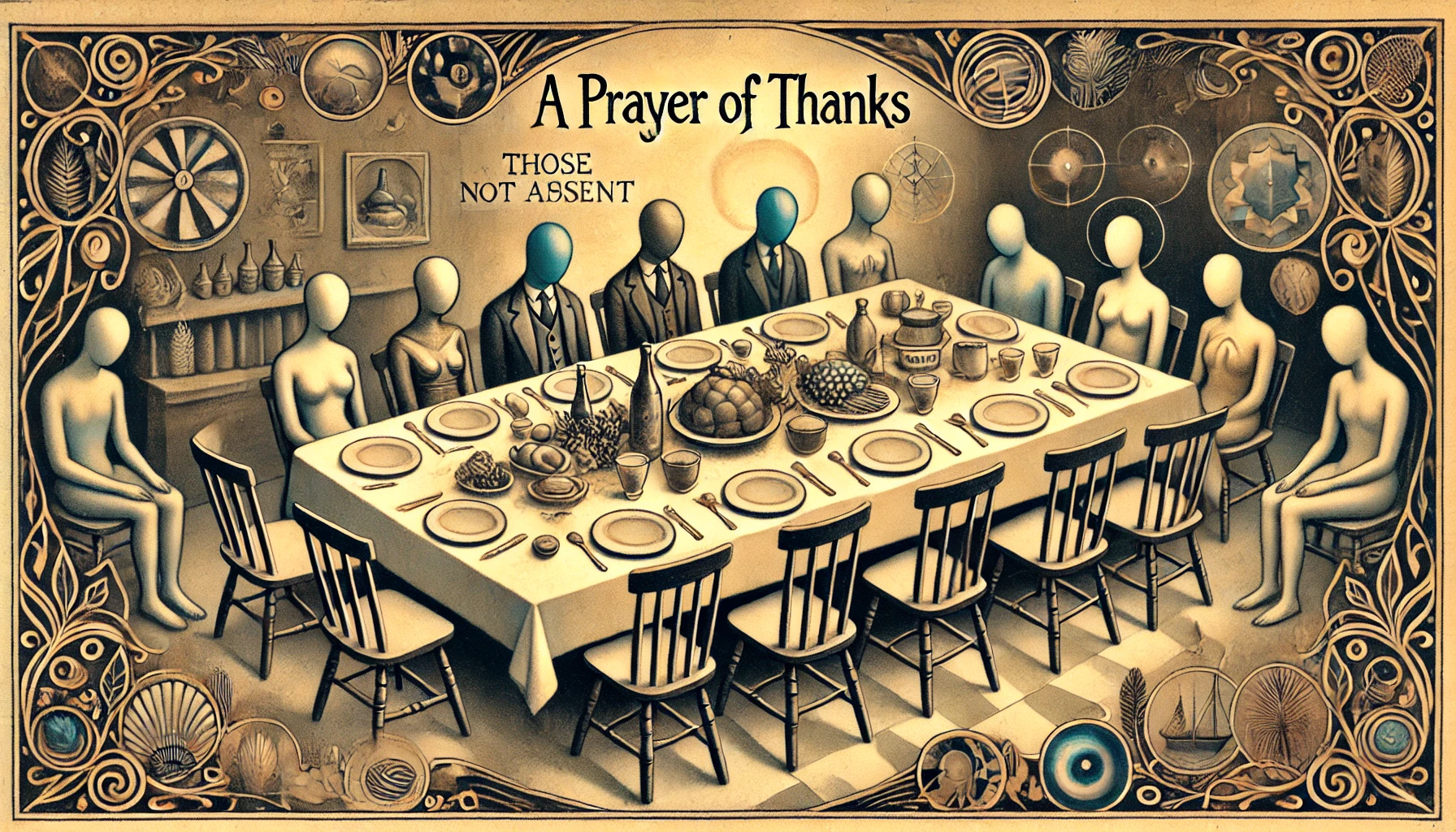
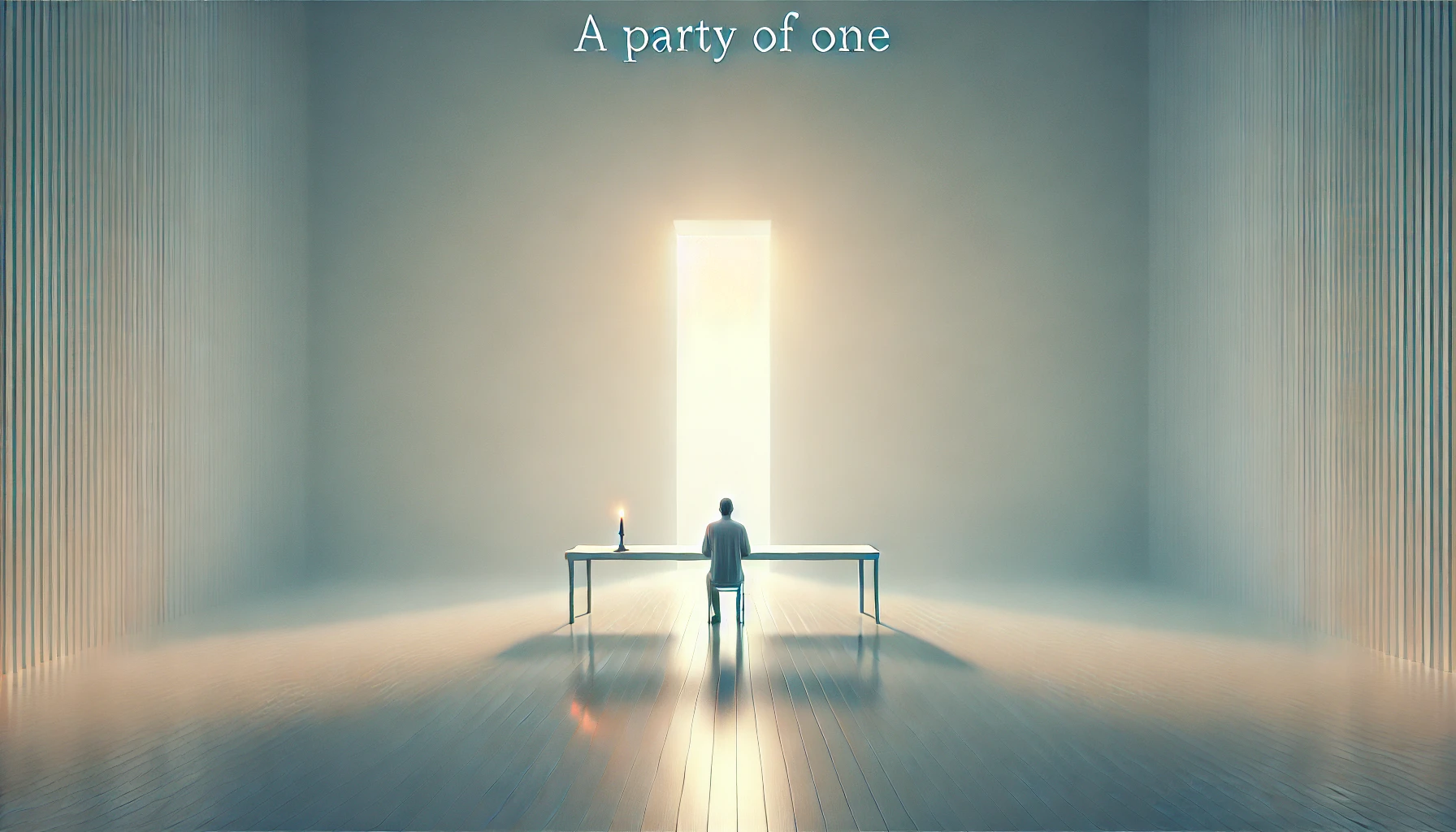
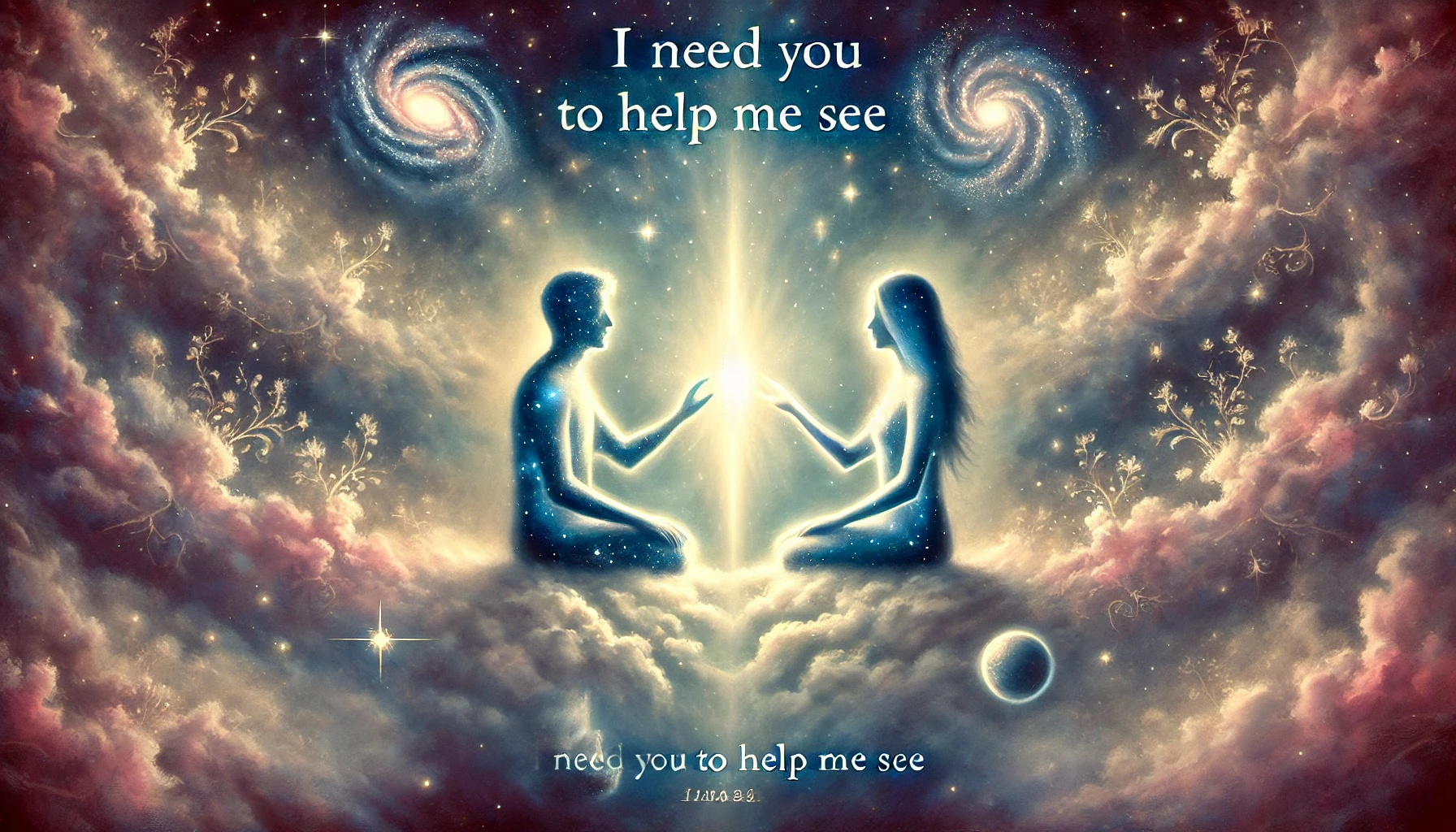
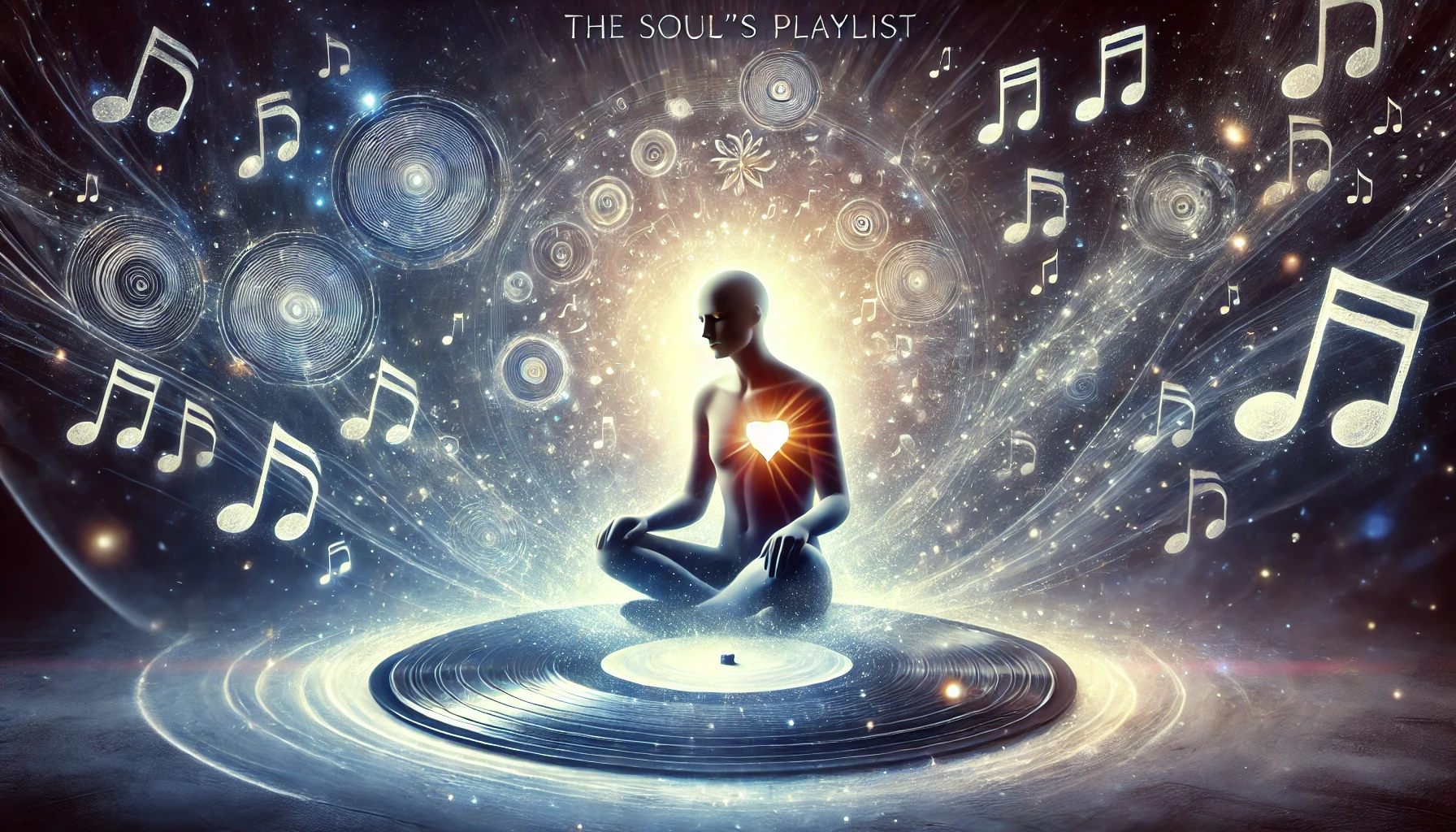



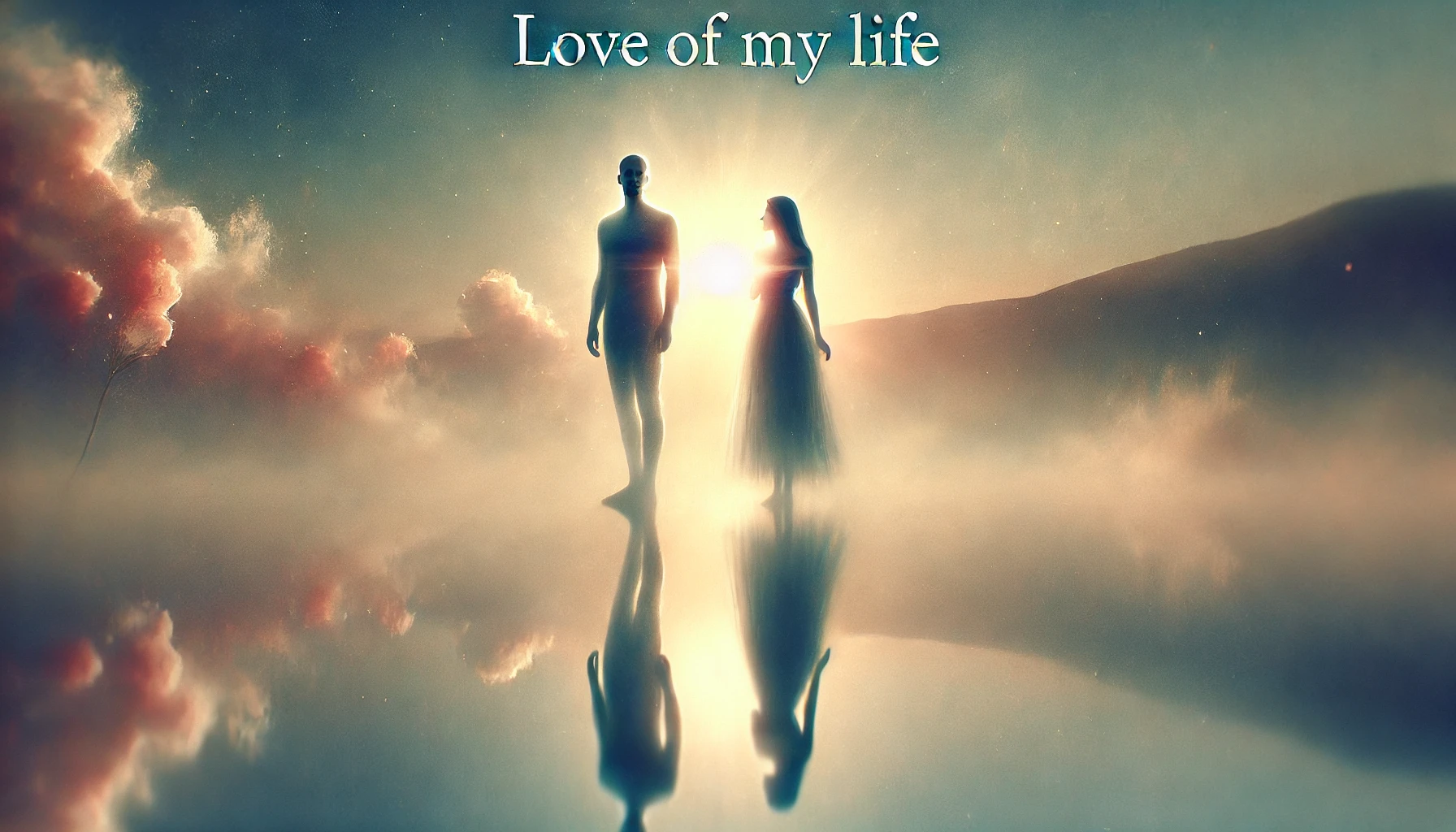
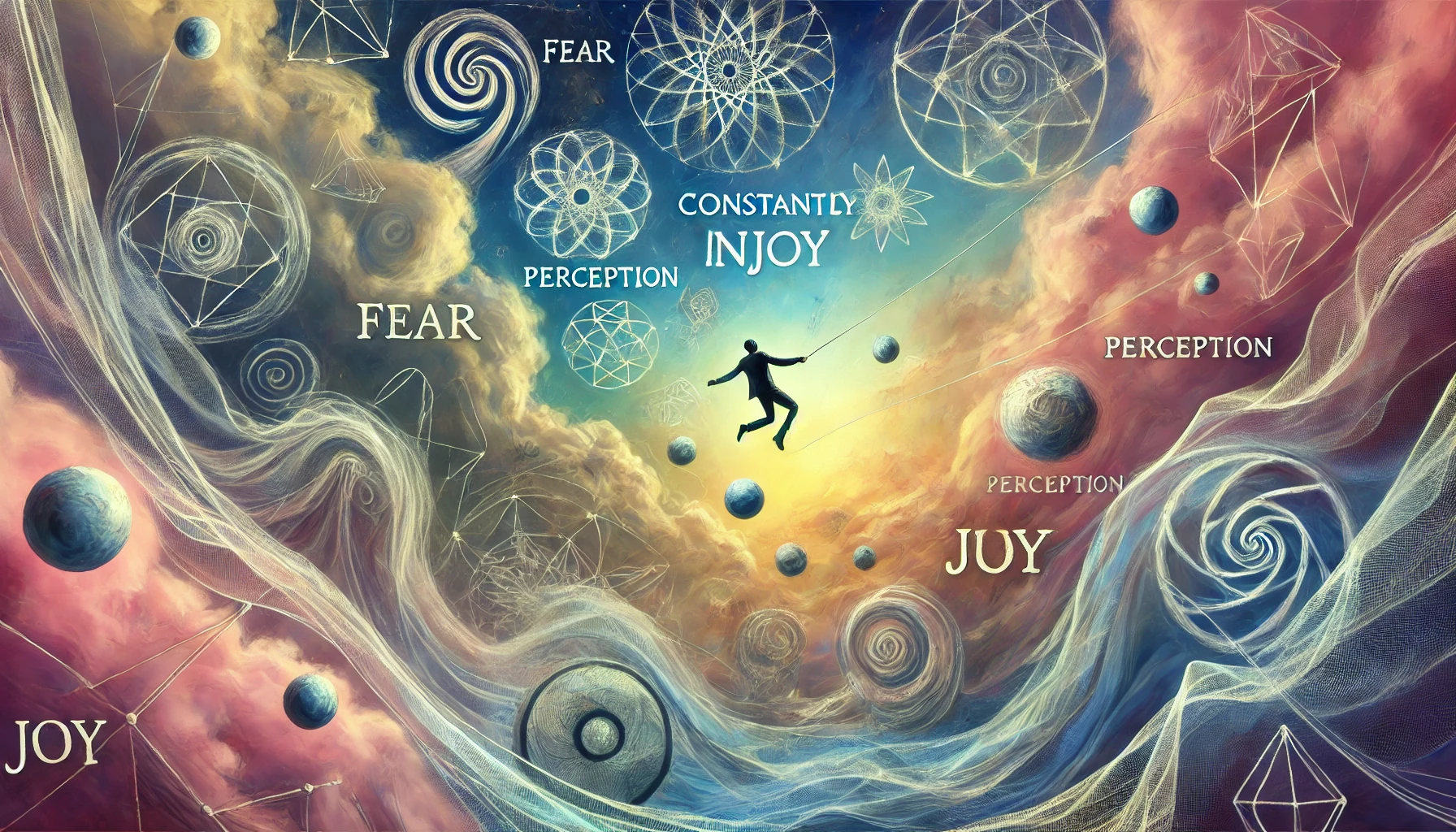
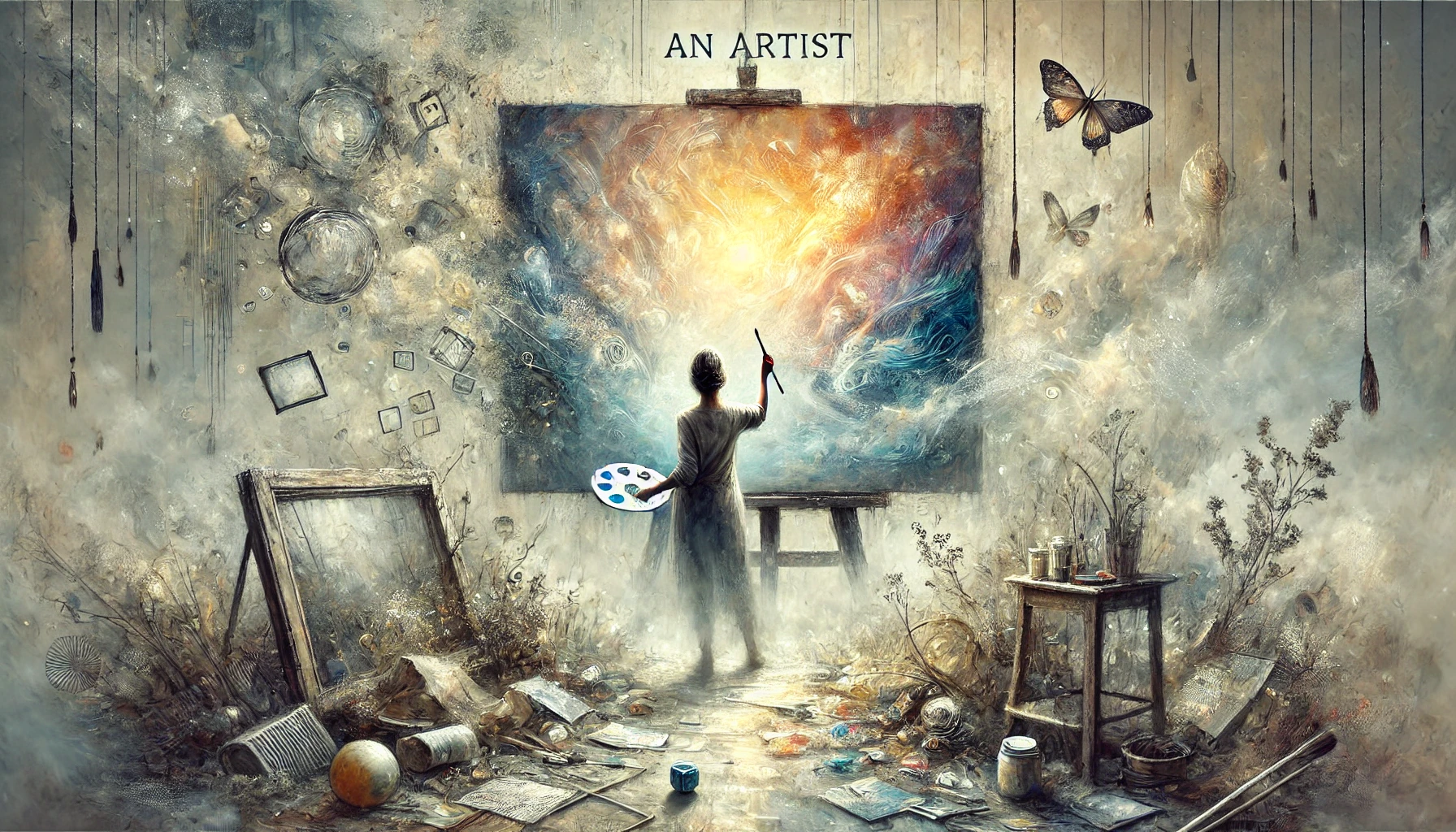
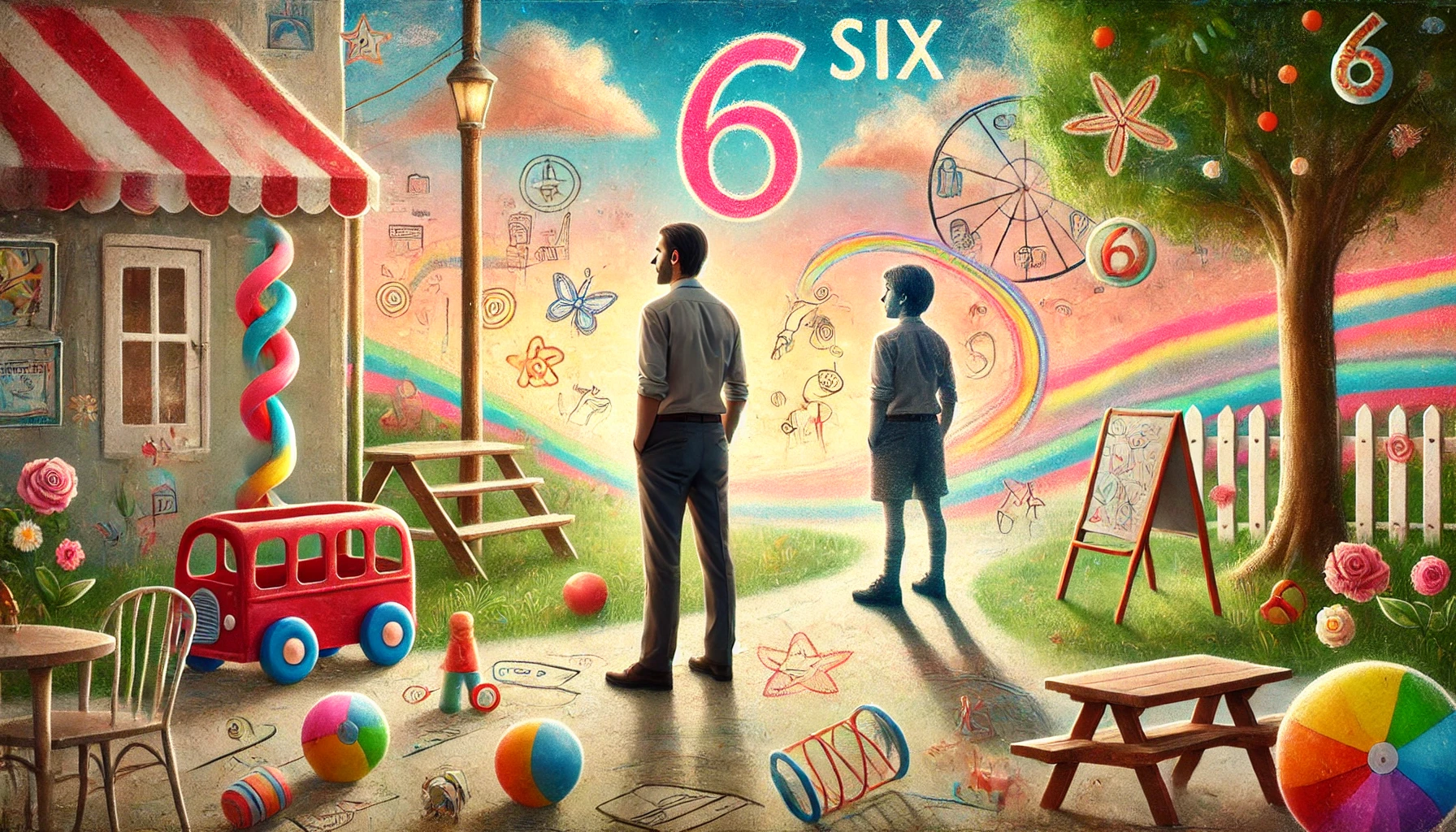
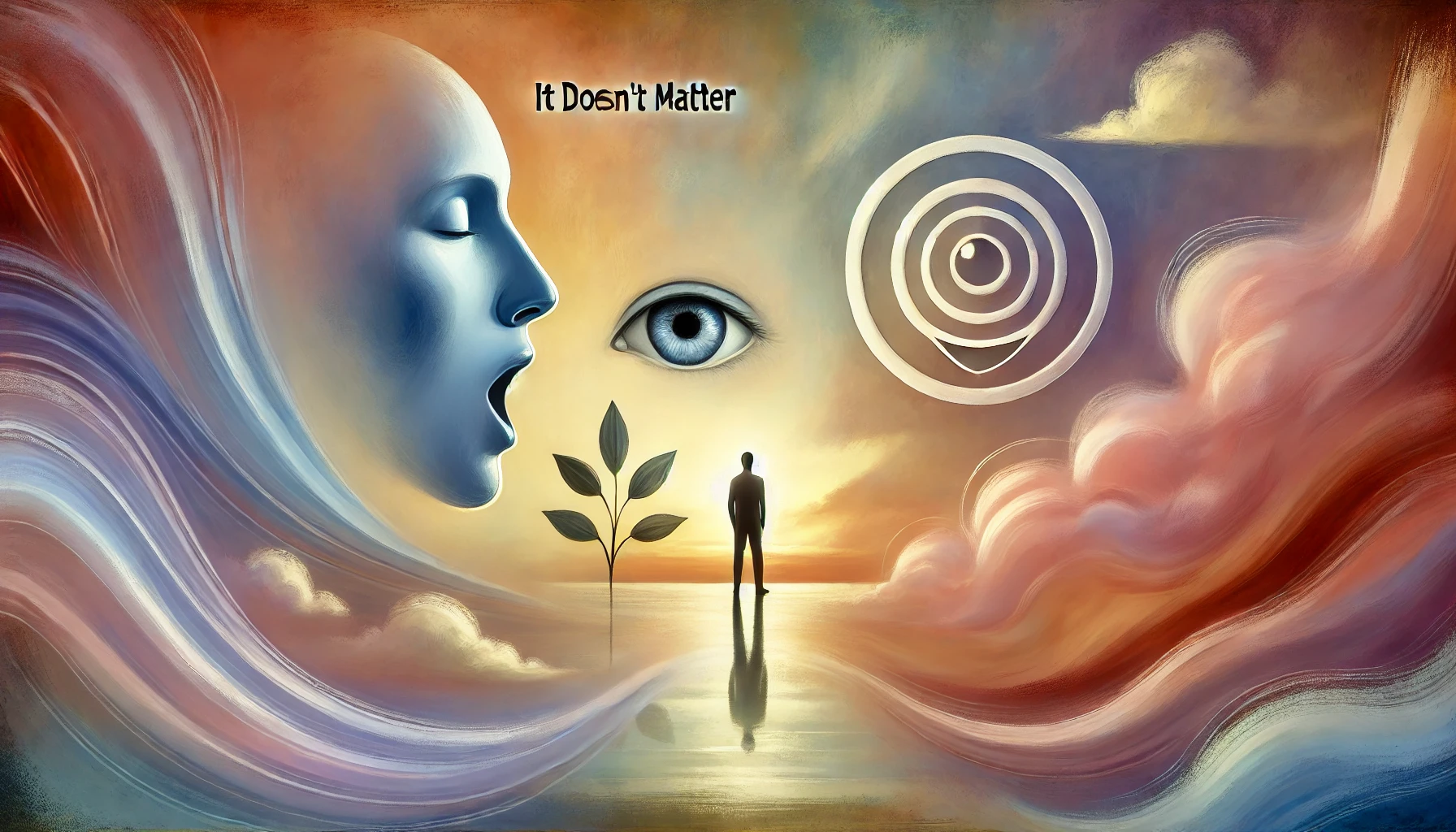


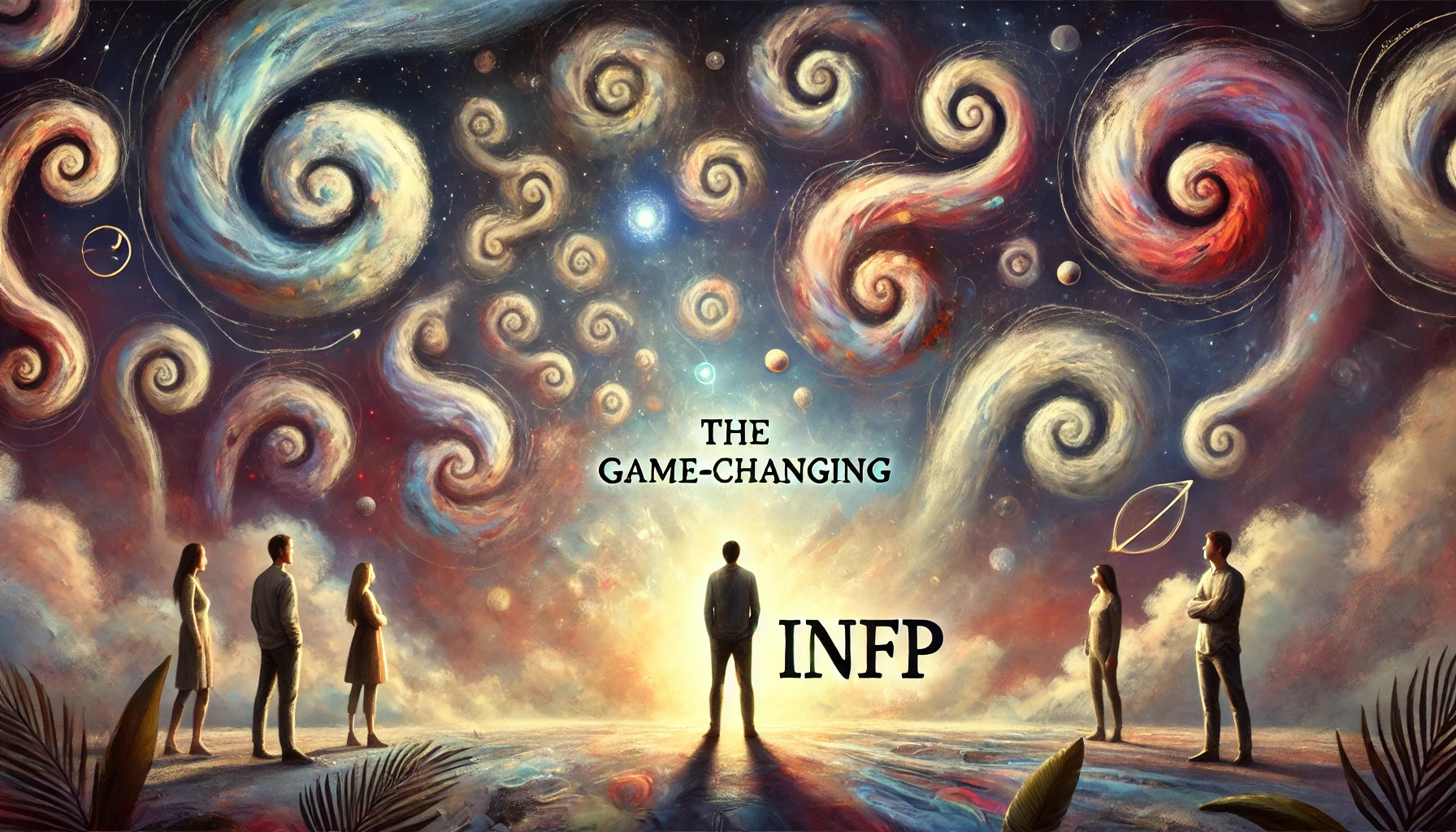


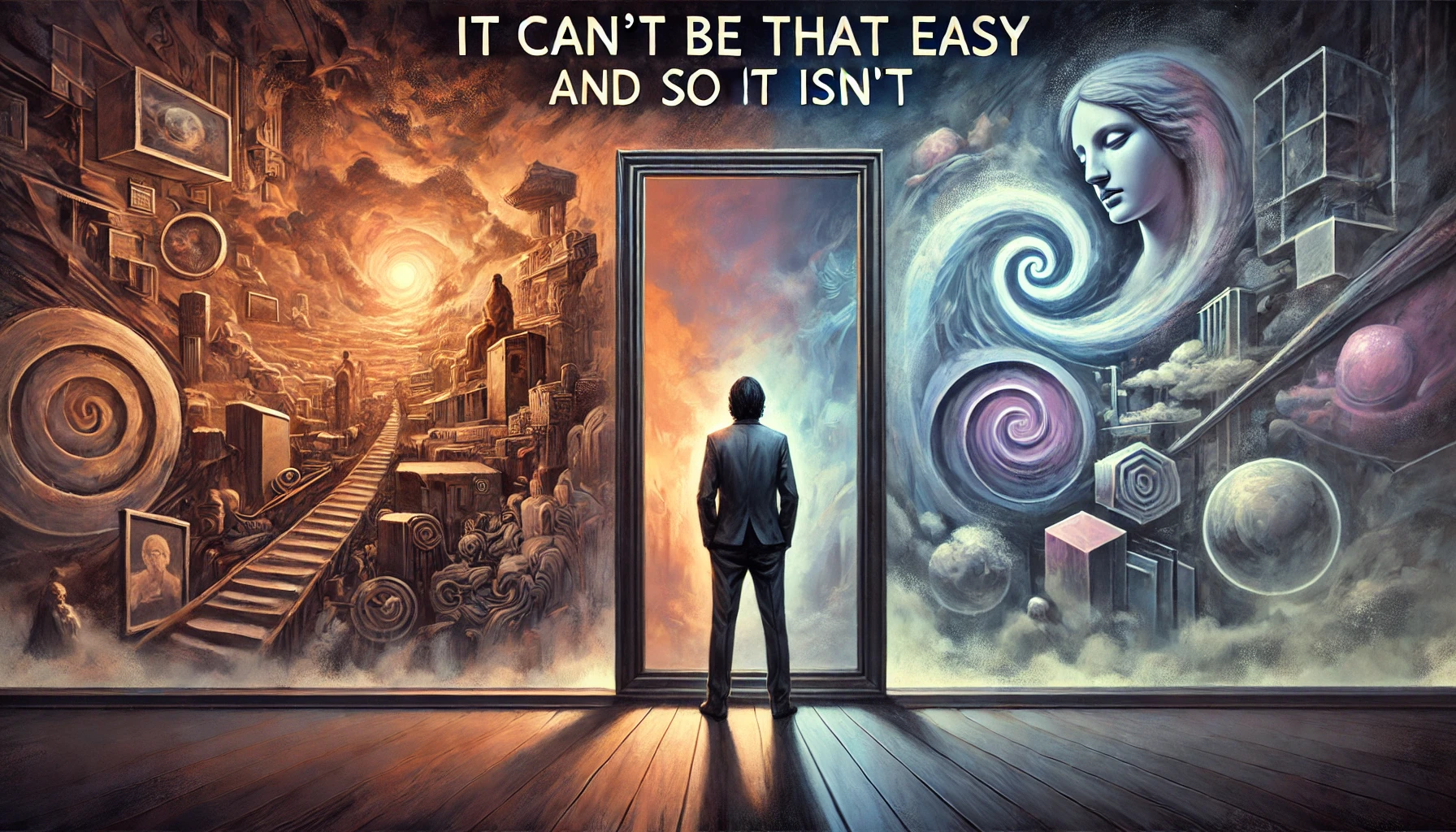



Leave a Reply